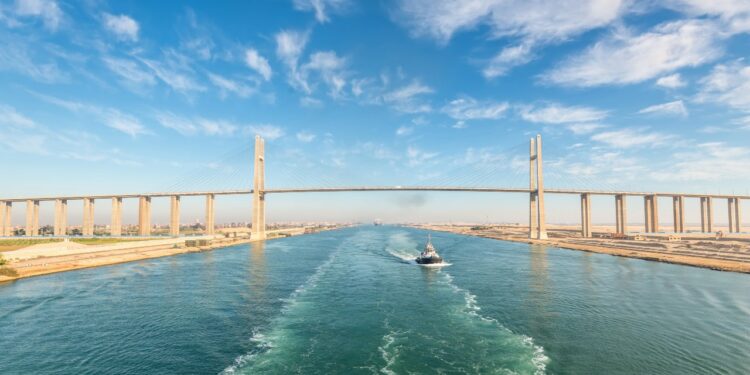In July 1956, Egyptian president Gamal Abdel Nasser stunned Britain, France and much of the West by nationalising the Suez Canal, triggering a geopolitical and military confrontation that revealed the crumbling of old imperial power and a shift in global influence toward the United States and the Soviet Union.
National pride meets colonial interest
On 26 July 1956, Nasser announced in a fiery speech in Alexandria that Egypt would take control of the Suez Canal, previously operated by the Suez Canal Company – a joint Franco-British enterprise. The move was a direct response to the withdrawal of Western funding for the Aswan High Dam, which Nasser viewed as a betrayal by Britain and the United States. The canal, a vital maritime route connecting the Mediterranean Sea to the Red Sea, was seen by the British as a lifeline to their former colonies and oil-rich Gulf allies. France, still grappling with insurgency in Algeria, feared Nasser’s pan-Arab nationalism would embolden anti-colonial revolts.
The tripartite plan and military fallout
Britain, France and Israel secretly devised a plan to regain control: Israel would invade the Sinai Peninsula, prompting Britain and France to intervene under the guise of protecting the canal. On 29 October, Israeli forces launched Operation Kadesh, quickly advancing toward the canal. Two days later, British and French forces began bombing Egyptian positions, and paratroopers landed in Port Said. Though militarily effective, the operation collapsed under intense political pressure from both the United States and the Soviet Union. President Eisenhower, furious at being excluded and wary of Cold War escalation, demanded an immediate ceasefire. The USSR threatened military retaliation.
UN intervention and the end of empire
Faced with overwhelming international condemnation and economic pressure, Britain and France were forced into a humiliating withdrawal. A United Nations Emergency Force (UNEF) was deployed to oversee the ceasefire and secure the canal zone, marking one of the first major peacekeeping missions of its kind. By March 1957, all foreign troops had withdrawn and Egypt retained full control of the canal. The episode signalled the end of British and French pretensions to global dominance. It also underscored the growing influence of multilateral diplomacy and the emergence of the United Nations as a critical actor in global crises.
Economic and strategic consequences
The Suez Crisis disrupted oil shipments and rattled global markets, especially in Europe, where fuel rationing returned temporarily. Although the canal was soon reopened, the event accelerated the decline of sterling as a global reserve currency and sowed doubt in London’s ability to act independently. The episode also emboldened anti-colonial movements across Africa and the Middle East. In Egypt, Nasser emerged as a hero, consolidating his leadership in the Arab world and reinforcing the idea that post-colonial states could defy Western interests without direct subjugation.
Legacy of the Suez moment
Nearly seventy years on, the 1956 Suez Crisis remains a pivotal moment in twentieth-century history. It exposed the fragility of imperial alliances and highlighted the complexities of navigating Cold War geopolitics. More fundamentally, it redefined international norms: military intervention in the name of economic interest was no longer acceptable in an era increasingly shaped by decolonisation and diplomatic consensus. For Britain and France, it marked the twilight of empire; for Egypt, it was a symbolic assertion of sovereignty in the post-war world.
REFH – Newshub, 26 July 2025


Recent Comments